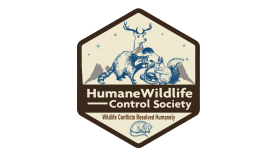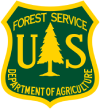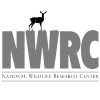Humane Wildlife Control in Houston, TX
The Humane Wildlife Control Society recommends non-invasive solutions to resolve human-wildlife conflicts. This includes:
Determining if the issue needs to be addressed at all
Opting for preventative measures first
Opting for wildlife exclusion as opposed to trapping
If trapping is the only way to solve the problem do so humanely
The Humane Wildlife Control Society screens candidates prior to recommendation. Our process requires any company we recommend to meet the following criteria:
Is properly licensed in Texas for wildlife control
Carries appropriate business licenses and insurance
Complies with all Texas laws and regulations for wildlife control
Adheres to the humane principles listed above.
In Houston, Texas we recommend Humane Wildlife Removal Houston for professional wildlife control services. This is a private company that charges for their services.
Contact Information:
Elite Wildlife Services
713-244-6679
If you have any wildlife issues that can be handled by the state government agency for free, the Texas Wildlife Commission can help.
State Contact Information: 512-389-4800
The State Department of Agriculture may also be able to address your wildlife problem for no charge.
USDA Contact Information: 512-463-6477
Legal and Humane Animal Removal Practices in Houston, Texas: A City Guide I. Regulatory Framework: Texas Parks and Wildlife Department (TPWD): TPWD is the primary regulatory body for wildlife management in Texas. Houston adheres to state regulations concerning protected species, hunting, trapping, and nuisance wildlife. Prioritization of Humane Methods: The City of Houston emphasizes non-lethal methods for wildlife removal whenever feasible, minimizing stress and suffering. Exclusion: Illegal Trapping or Hunting: Trapping or hunting protected species or without proper permits is prohibited. Prevention: Implement preventative measures to minimize wildlife interactions. Texas Parks and Wildlife Department (TPWD): For information on state wildlife regulations and permits.
The City of Houston recognizes the importance of responsible wildlife management, prioritizing public safety and animal welfare. This guide outlines legal and humane animal removal practices for residents and businesses within Houston city limits.
Houston Municipal Code: The City of Houston has ordinances addressing animal control, including regulations on domestic animals and specific wildlife interactions.
Federal Regulations: Certain species, such as migratory birds, are protected under federal laws, including the Migratory Bird Treaty Act.
II. Ethical Principles and Humane Practices:
Prevention and Exclusion: Proactive measures and exclusion techniques are preferred over removal.
Habitat Modification: Altering landscaping and removing attractants to discourage wildlife from specific areas is encouraged.
Relocation (When Necessary): Relocation is considered only when other humane methods are not effective and in strict compliance with TPWD regulations. Relocation is not always in the best interest of the animal.
Lethal Control (Last Resort): Lethal control is considered only when necessary to protect public safety or prevent significant property damage, and only with proper authorization and permits.
III. Legal Animal Removal Practices:
Sealing entry points to prevent wildlife from accessing buildings and structures.
Installing barriers and fencing to deter wildlife from specific areas.
Habitat Modification:
Removing food sources and shelter sites.
Modifying landscaping to reduce attractants.
Live Trapping (with Restrictions):
Live trapping may be permitted for certain species, but only in compliance with TPWD regulations.
Traps must be checked regularly, and animals must be handled humanely.
Relocation requires strict adherence to TPWD guidelines.
Licensed Wildlife Control Operators:
Residents are encouraged to seek assistance from licensed wildlife control operators for complex situations.
Licensed professionals are knowledgeable about applicable regulations and humane removal techniques.
IV. Prohibited Activities:
Use of Inhumane Traps or Methods: The use of traps or methods that cause unnecessary suffering is prohibited.
Indiscriminate Killing or Harming: The intentional killing or harming of wildlife without proper authorization is prohibited.
Public Feeding of Wildlife (Certain Species): Feeding certain wildlife species can create nuisance problems and is discouraged.
V. Resident Responsibilities:
Reporting Concerns: Report wildlife concerns to the appropriate authorities, including Houston Animal Control or TPWD.
Compliance with Regulations: Adhere to all applicable local, state, and federal laws.
Humane Treatment: Treat wildlife with respect and avoid causing unnecessary harm.
VI. Key Resources:
Houston Animal Control: For local animal control ordinances and reporting.
Licensed Wildlife Control Operators: For professional assistance with wildlife removal.







